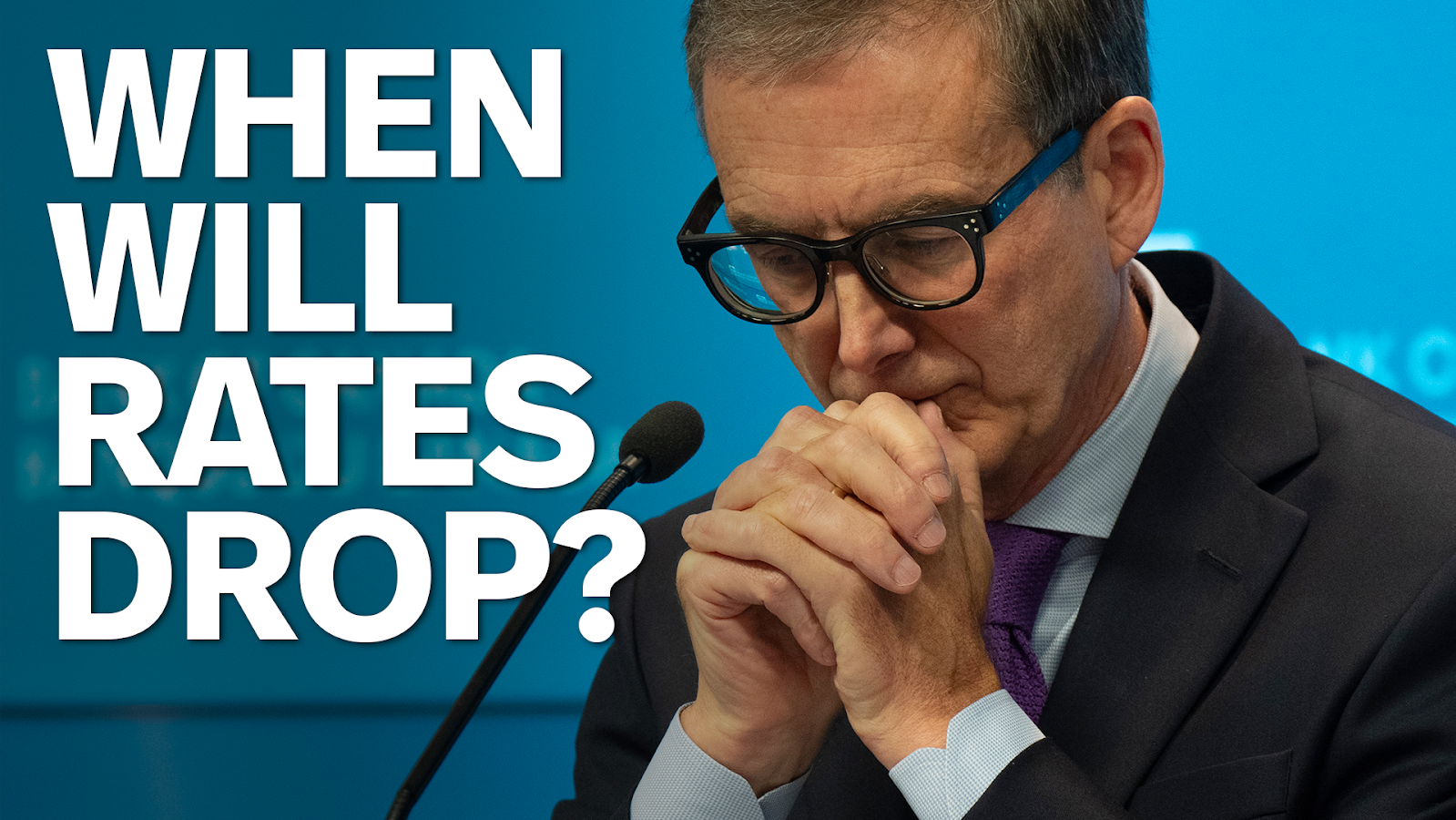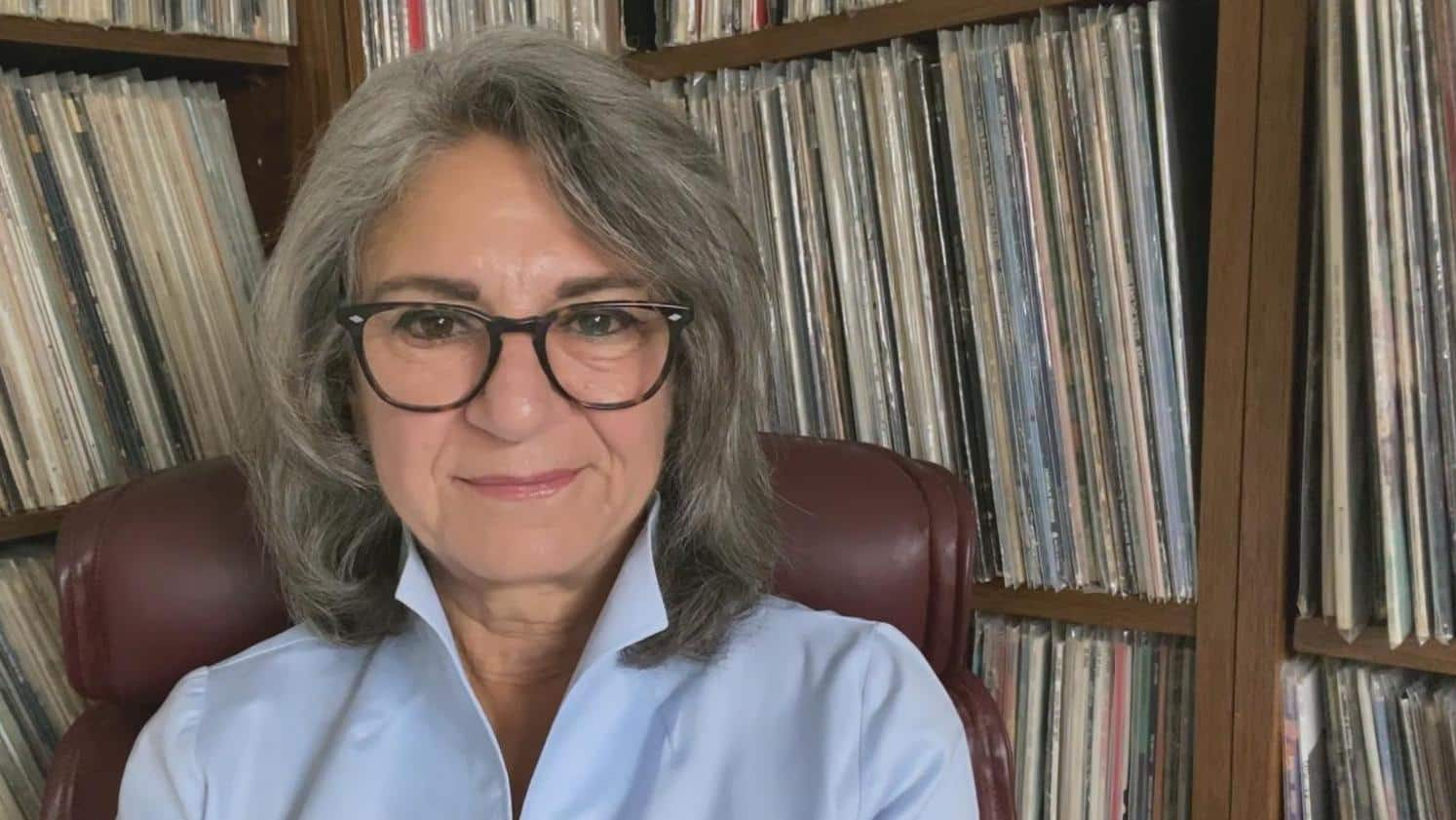The Current18:56Why Tiff Macklem won’t rule out more rate hikes
Bank of Canada Governor Tiff Macklem says he knows aggressive rate hikes have caused financial hardship for many Canadians, but he can't say when those rates will come down again.
"I understand exactly how people are feeling, but I also don't want to give them false precision," Macklem told The Current's Matt Galloway.
"When we start to see clear evidence that we're on a path back to two per cent inflation … that's when we can start to have the discussion about lowering interest rates."
The Bank's key interest rate climbed from 0.25 per cent to five per cent between March 2022 and July 2023, driven by 10 rate hikes in a row. Those hikes were designed to curb inflation, which became a global concern as the pandemic waned. Canada reached a four-decade inflation high of 8.1 per cent in the summer of 2022, and fell to 3.8 per cent last month.
That drop in inflation allowed the Bank to hold the rate steady at five per cent on Wednesday, offering some relief to mortgage holders who have seen their monthly payments increase — some by thousands of dollars.
When pressed on when Canadians can expect the rates to start dropping, Macklem said the key milestone of two per cent inflation is expected by 2025.
"The economy's not overheated anymore … we do think there's more inflation relief in the pipeline. And if that comes through, we won't have to raise rates further," he said.
The Bank's forecasts place inflation at around 3.5 per cent until summer of 2024, but "if we're lucky, we'll start to see clearer evidence it's coming down before that," he said.
For Canada, bringing inflation fully under control will require a period of very slow growth, Macklem said, but he rejected the idea that the country needs a recession.
"A recession is a big decline in output and a big increase in unemployment. We don't need that. We don't want that," he said.
"We think there is a path to getting inflation down with very weak growth."
Macklem added that the Bank has "left the door open" to further rate hikes, if inflation persists. "But the evidence we've got in the last few months is giving us the confidence to be patient," he said.
Rate hikes painful, but doing nothing is 'worse'
Speaking to CBC Radio's Metro Morning on Wednesday, economist Frances Donald said she thinks the Bank might not hike rates further, but they might be reluctant to admit that.
"I'm not sure they can say the quiet part out loud," said Donald, chief economist at Manulife Investment Management.
"If people believe there's rate cuts, maybe they'll start to go out and inflate housing again and spend, and then we're kind of back in this inflationary mess," she said.
"So just like a parent that's trying to control their child's behaviour, I think we're probably going to be told one thing, but there might be something else happening behind the scenes."
Macklem said he's "deeply concerned about the pain" that rate hikes have caused.
"We know that higher interest rates are squeezing some Canadians … I don't feel good about that," he said.
"But the alternative ��— just living with inflation, letting your paycheque buying power get eroded year after year — that's worse."
Pandemic-era promises
Macklem became governor of the Bank in June 2020, a few months into the pandemic when the benchmark interest rate was at 0.25 per cent. In July of that year, Macklem told Canadians that rates would stay low for a long time.
"If you've got a mortgage, or if you're considering to make a major purchase, or you're a business and you're considering making an investment, you can be confident that interest rates will be low for a long time," he said at a news conference in July 2020.
Looking back now, Macklem told Galloway he was trying to encourage people that the economy could overcome the instability of the pandemic.
"You have to go back to where we were. I mean, the economy had more than three million people unemployed; another three million were working less than half their regular hours," he said.
"We were really worried we were moving into a depression."
Politicians don't influence rate decisions: Macklem
In July, Conservative Party Leader Pierre Poilievre accused Macklem and the Bank of "printing money" through pandemic-era quantitative easing — a way that central banks try to stimulate the economy by buying up large amounts of government bonds.
"Printing money causes inflation, especially housing, house price inflation, and that is what helped contribute to this massive crisis we have today," Poilievre said during his campaign to become party leader.
"That's why I said I will replace the governor of the Bank of Canada with someone who will keep inflation low and protect the purchasing power of our money."
Premiers in Ontario, B.C. and Newfoundland and Labrador have also written letters to Macklem urging him to halt rate hikes.
Macklem shrugged off Pollievre's criticism at the time, and reiterated to Galloway that he's "going to leave politics to the politicians."
"If you're asking me if the letters from the premiers influenced our decision, the answer is no," he said.
"If you're asking me do the concerns, do the perspectives, do the worries of Canadians feed into our decisions, the answer is yes."
The Bank welcomes constructive criticism, he added, but protecting its independence "is important for achieving and maintaining price stability."
"That independence is most important when the decisions are difficult — and right now the decisions are difficult," he said.
https://news.google.com/rss/articles/CBMiVmh0dHBzOi8vd3d3LmNiYy5jYS9yYWRpby90aGVjdXJyZW50L3RpZmYtbWFja2xlbS1pbnRlcmVzdC1yYXRlcy1vY3RvYmVyLTIwMjMtMS43MDA4OTUy0gEgaHR0cHM6Ly93d3cuY2JjLmNhL2FtcC8xLjcwMDg5NTI?oc=5
2023-10-26 18:01:08Z
2522258229


Tidak ada komentar:
Posting Komentar